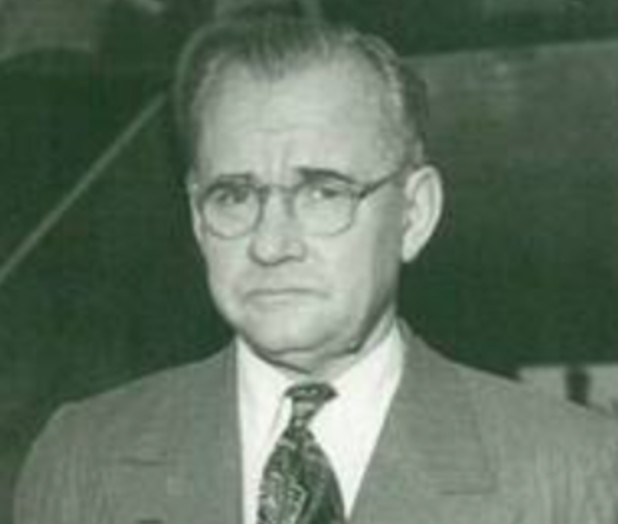
Lincoln Fitzgerald
Childhood
Born in San Francisco, California, Fitzgerald's early life took an intriguing turn when he resided in Detroit, Michigan. A veteran of the United States Army, having served in World War I, Fitzgerald's time in Detroit saw him involved in the world of gambling. This period also saw his association with the notorious Detroit Purple Gang, a criminal organization primarily composed of individuals of Jewish descent engaged in a spectrum of illegal activities, including prostitution, bootlegging, and murder. The extent of Fitzgerald's involvement remains somewhat opaque, but this connection undoubtedly shaped his understanding of the underbelly of the gambling world and the risks and rewards it entailed.
Career
Fitzgerald's foray into the formal gambling industry began in partnership with Danny Sullivan. Together, they operated several gambling establishments in Detroit, one of which was known as the Detroit Gambling Club. In 1946, seeking new opportunities, the duo relocated to Reno, Nevada, bringing with them a truckload of gambling equipment. This move marked a pivotal moment in Fitzgerald's career.
In the same year, Fitzgerald and Sullivan established their first Reno casino, aptly named The Nevada Club, in downtown's heart. This venture was the foundation of Fitzgerald's growing empire in the Silver State. Despite facing legal challenges stemming from their operations in Michigan, which were eventually resolved through significant fines and court costs, Fitzgerald persevered in Nevada.
His ambition and business acumen culminated in 1976 with the opening of Fitzgeralds Casino & Hotel, a towering 16-story establishment in Reno. This expansion solidified his position as a major player in the Nevada gaming scene. By the time of his death in 1981, Fitzgerald was successfully operating three casinos: Fitzgeralds Casino & Hotel (Reno), The Nevada Club (Reno), and the Nevada Lodge at Lake Tahoe. His career trajectory exemplifies a determined ascent in a competitive and often volatile industry.
Personal life
Fitzgerald was married to Meta née Konarske. A significant turning point in his personal life occurred in the early hours of November 19, 1949, when he survived a brutal murder attempt. An unidentified assailant shot him with a shotgun in his garage, inflicting severe injuries. Despite being shot at a second time, the assailant missed. The attack left him with over 110 shotgun pellets lodged in his body, causing significant damage to his spine and liver, and a permanent limp. The shooter was never apprehended, with authorities suspecting a possible link to his past associations with the Purple Gang.
This traumatic event profoundly impacted Fitzgerald's life. He became increasingly reclusive, often residing within the confines of his casinos, particularly in a steel-walled apartment on the second floor of The Nevada Club. The Reno Gazette-Journal described him as reclusive. Following the attempt on his life, Fitzgerald also began accumulating a unique collection of silver dollars and casino memorabilia in a Reno warehouse.
Revenue
Specific details regarding Lincoln Fitzgerald's precise revenue figures during his career are not readily available. However, he successfully operated three casinos, including a large hotel and casino in Reno and a lakeside lodge at Tahoe, suggests a substantial financial success. The scale of these operations indicates a considerable income stream, positioning him as a wealthy and influential figure within the Nevada gaming industry.
Interesting facts
One of the most intriguing aspects of Fitzgerald's story is the discovery of the "Fitzgerald Hoard" after his death. A California coin dealer, Ron Gillio, purchased all the contents of a Reno warehouse owned by Fitzgerald. This hoard contained an astonishing collection, including numerous casino chips and approximately 100,000 American silver dollars. This unusual accumulation speaks to a unique facet of Fitzgerald's personality and perhaps a distrust of traditional banking systems, or simply a collector's penchant. The hoard has since become a notable piece of numismatic history.
Legacy
Lincoln Fitzgerald's legacy lies in his significant contribution to the development of the casino industry in Nevada, particularly in Reno and Lake Tahoe. He transitioned from operating smaller gambling establishments to establishing and managing large-scale casino resorts, demonstrating business acumen and resilience in a demanding field. His ability to survive a violent attack and continue to expand his business speaks to his tenacity. Furthermore, the discovery of the Fitzgerald Hoard adds a mystique to his persona, cementing his place in the annals of Nevada's colorful casino history.
Frequently asked Questions
Lincoln Fitzgerald was an American casino owner who operated three casinos in Nevada: Fitzgeralds Casino & Hotel (Reno), The Nevada Club (Reno), and the Nevada Lodge at Lake Tahoe. He had a history of gambling in Michigan and was associated with the Detroit Purple Gang before moving to Nevada.
The Fitzgerald Hoard was a collection of items discovered in a Reno warehouse after Lincoln Fitzgerald's death. It included approximately 100,000 American silver dollars and many casino chips. Coin dealer Ron Gillio purchased the entire collection, which has become a notable part of numismatic history.
While living in Detroit, Michigan, Lincoln Fitzgerald was associated with the Detroit Purple Gang, a criminal organization involved in various illegal activities, including gambling. Authorities also suspected the Purple Gang might have been involved in the 1949 attempt on his life.
Fitzgerald played a significant role in developing the casino industry in Nevada, particularly in Reno and Lake Tahoe. He established and operated multiple gaming venues, including the large Fitzgeralds Casino & Hotel in Reno, contributing to the growth and prominence of these gambling destinations.
Lincoln Fitzgerald survived a murder attempt in 1949 but suffered lasting injuries. He operated his casinos until his death on April 18, 1981, at Washoe Medical Center. The cause of death was an upper respiratory tract infection.











